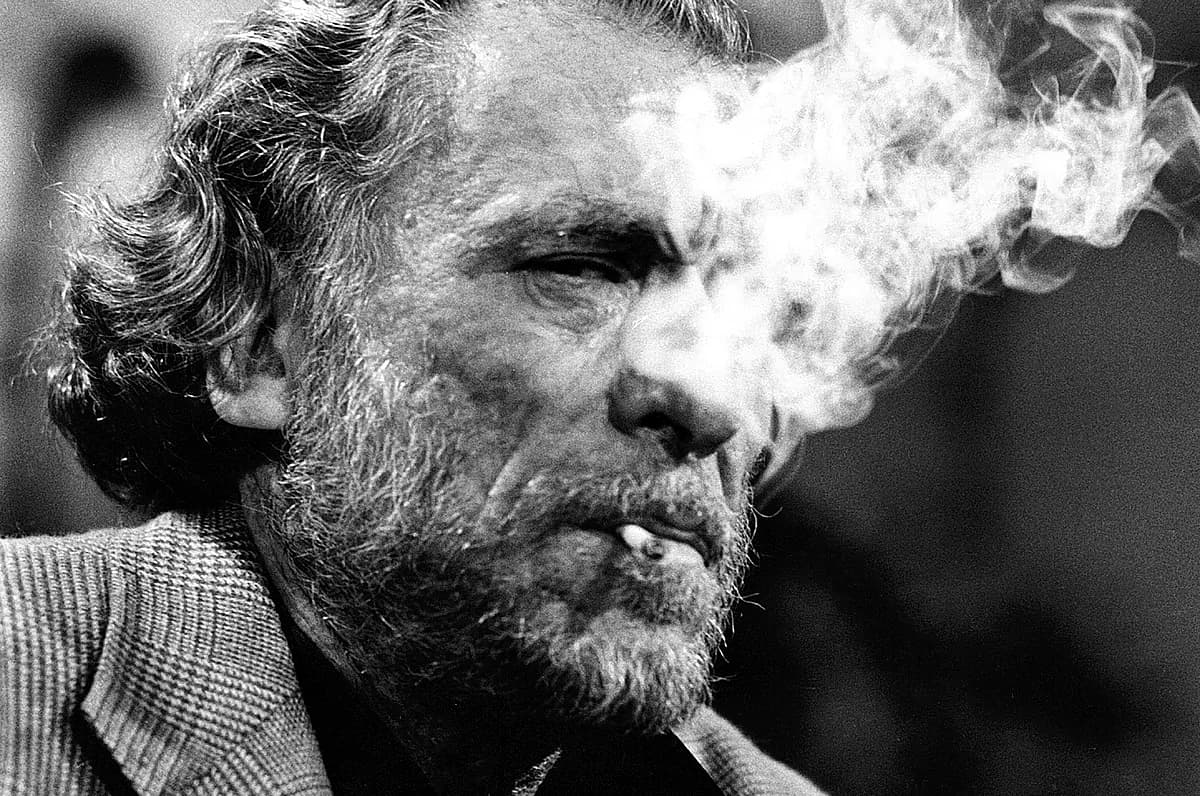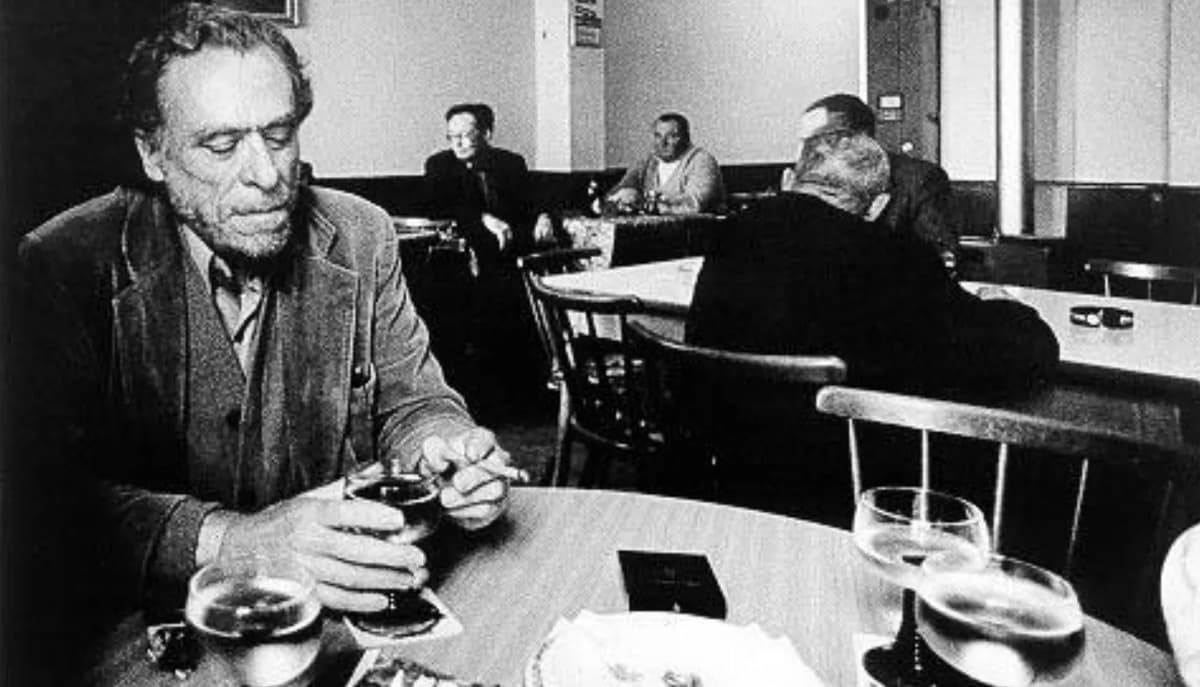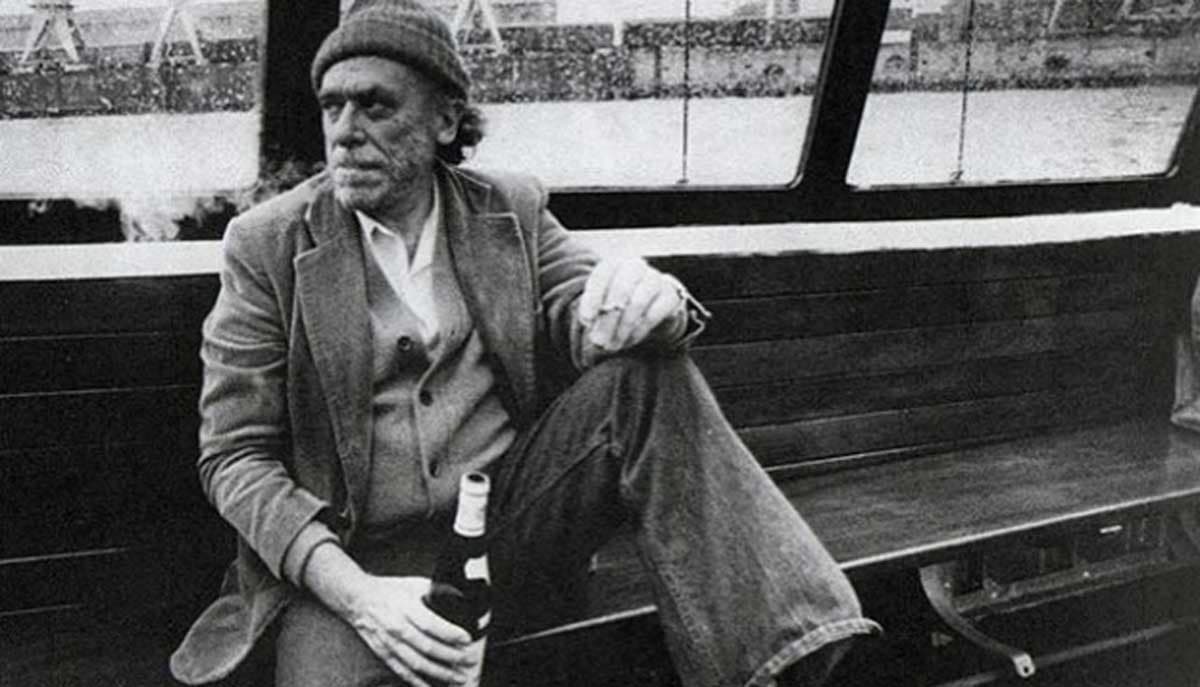
Main facts about Charles Bukowski
Henry Charles Bukowski, born Heinrich Karl Bukowski on August 16, 1920 was a German–American writer who authorized poetry, novels and short stories. Influenced by the social, cultural, and economic ambiance of his adoptive city, Los Angeles, his work addresses a number of topics suchs as:
- The ordinary lives of poor Americans.
- The act of writing.
- Alcohol (and alcoholism).
- Relationships with women.
- The drudgery of work.
Bukowski wrote thousands of poems, hundreds of short stories and six novels, eventually publishing over 60 books. The FBI kept a file on him as a result of his column Notes of a Dirty Old Man in the LA underground newspaper Open City. He published extensively in small literary magazines and with small presses beginning in the early 1940s and continuing on through the early 1990s. As noted by one reviewer:
"Bukowski continued to be, thanks to his antics and deliberate clownish performances, the king of the underground and the epitome of the littles in the ensuing decades, stressing his loyalty to those small press editors who had first championed his work and consolidating his presence in new ventures such as the New York Quarterly, Chiron Review, or Slipstream."
Since his death in 1994, Bukowski has been the subject of a number of critical articles and books about both his life and writings, despite his work having received relatively little attention from academic critics in the United States during his lifetime. In contrast, Bukowski enjoyed extraordinary fame in Europe, especially in Germany, the place of his birth.
Bukowski's Novels
Bukowski often spoke of Los Angeles as his favorite subject. In a 1974 interview he said,
"You live in a town all your life, and you get to know every bitch on the street corner and half of them you have already messed around with. You've got the layout of the whole land. You have a picture of where you are.... Since I was raised in L.A., I've always had the geographical and spiritual feeling of being here. I've had time to learn this city. I can't see any other place than L.A."
Writers including John Fante, Knut Hamsun, Louis-Ferdinand Céline, Ernest Hemingway, Robinson Jeffers, Henry Miller, D. H. Lawrence, Fyodor Dostoevsky, Du Fu, and Li Bai are noted as major influences on Bukowski's novels. Bukoswki wrote six major novels:
- Post Office (1971)
- Factotum (1975)
- Women (1978)
- Ham on Rye (1982)
- Hollywood (1989)
- Pulp (1994)
Bukowski's Poetry
Over half of Bukowski's collections have been published posthumously. Some of Bukowski's poetry books are:
- Flower, Fist, and Bestial Wail (1960)
- It Catches My Heart in Its Hands (1963)
- Crucifix in a Deathhand (1965)
- At Terror Street and Agony Way (1968)
- Poems Written Before Jumping Out of an 8-story Window (1968)
- A Bukowski Sampler (1969)
- The Days Run Away Like Wild Horses Over the Hills (1969)
Bukowski's Short Stories
An avid supporter of small independent presses, Bukowski continued to submit poems and short stories to innumerable small publications throughout his career. Some of them are:
- Confessions of a Man Insane Enough to Live with Beasts (1965)
- All the Assholes in the World and Mine (1966)
- Notes of a Dirty Old Man (1969)
- Erections, Ejaculations, Exhibitions, and General Tales of Ordinary Madness (1972)
- South of No North (1973)
- Hot Water Music (1983)
Resources on Bukowski
Some resources found online that can get you a better understanding of Bukowski's legacy:



